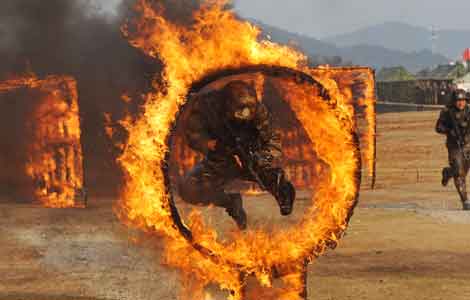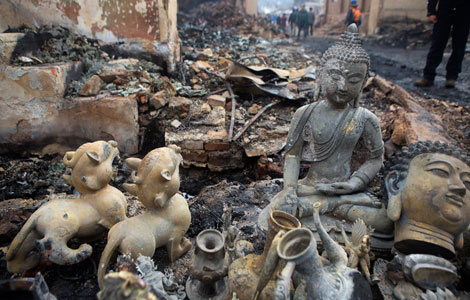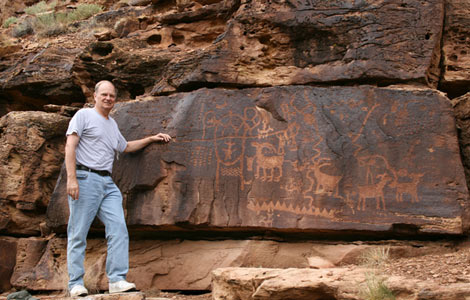Sharon's legacy full of contradictions
Updated: 2014-01-13 03:43
(Xinhua)
|
||||||||
JERUSALEM - Israel's late prime minister Ariel Sharon, an iconic leader in the Jewish state, left a legacy full of contradictions in his dealing with the Palestinians as well as other Arabs toward achieving peace in the Middle East.
Like many other leaders in Israel, Sharon started his career in the military before moving into politics. While some of his actions, such as crossing the Suez Canal in the 1973 war, are part of Israel's military triumph, others, such as his inaction to stop the Sabra and Shatila massacre during the 1982 Lebanon war, are dark stains on his political life.
"Sharon was a military hero, a daring officer loved by his troops, very successful and very original. This is one Ariel Sharon; the other one is a political figure which is full of contradictions," Prof. Efraim Inbar of the Bar-Ilan University told Xinhua.
"He built the Likud party. He destroyed it. He established his own party several times. He built the settlements and he destroyed some of them," added Inbar, who like Sharon served as a paratrooper and was part of an advisory group to the late leader in 2001.
Inbar said that "we see nowadays leaders much more constrained by the legal system, by the media. He lived in a different era but he was definitely characterized by an unusual ability to deliver."
He added that Sharon's ability to get things done also extended to his efforts as a housing minister to initiate building projects so that Israel could absorb about one million Jews from the former Soviet Union, as they were allowed to leave in the early 1990s.
Prof. David Nachmias, of the Interdisciplinary-Center in Herzliya, said that Sharon "was definitely one of the most important leaders that Israel has had in the last many years."
Nachmias added "that Sharon will be remembered for good deeds as well as for bad ones. But definitely he was a person as prime minister that stands out in the Israeli history."
While Sharon was regarded by many Israelis as a leader on the same level as David Ben-Gurion, Israel's first prime minister, Nachmias said that this might be a bit of an exaggeration and that when someone passes away people tend to attribute many good things to them.
"He definitely had an impact on Israeli politics and Israeli foreign policy, particularly with regard to the occupied territories. But I would not compare him to the stature of David Ben-Gurion or Menachem Begin from the Likud party," Nachmias said.
Israeli settlements
Sharon held a unique position when it comes to Israel's settlements in the West Bank and Gaza. On one hand, he was instrumental in aiding the construction of settlements in the West Bank during his time as housing minister. On the other hand, it was him as prime minister that single-handedly pushed through the withdrawal of Israeli settlements and military bases from the Gaza Strip in 2004.
Sharon was harshly criticized by members of his own Likud party, especially current Prime Minister Benjamin Netanyahu; nevertheless, due to his unique standing, he was able to "bulldoze" over his opponents and in the end Israel left Gaza. This was an accomplishment that many Israelis have come to admire and expect in today's politicians.
After the Gaza disengagement, Sharon broke away from the Likud to form his own party called Kadima, forward in Hebrew. However, in January 2006, before he could run in the elections to the Knesset parliament, Sharon suffered a brain hemorrhage and fell into a coma.
Most public opinion polls at the time indicated that Sharon would have become the next prime minister as the head of Kadima. Whether or not he would have continued the policy of unilateral withdrawal or opt for a negotiated settlement will remain unknown.
However, the decisions that he took both as general and prime minister will continue to have an impact on Israel and regional politics for a long time.
Most Viewed
Editor's Picks

|

|

|

|

|

|
Today's Top News
Rich Chinese tourists looking to space
Deals 'blow' against separatists
Sharp fall in tourism hits Beijing
Sharon's legacy full of contradictions
Lenovo targets US, but when?
Embraer extends coverage in China's aircraft market
Japan tries to justify shrine visit
Culture sets the beat for ties
US Weekly

|

|














